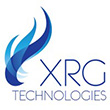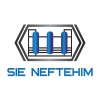-
Governments and businesses are increasingly committed to steep decarbonization targets, establishing hydrogen as a key component in the energy transition. As of this writing, McKinsey reports that 64 countries, representing 89% of global CO2 emissions, have made net-zero pledges, while financial institutions and private sector enterprises also continue to increase their decarbonization aspirations. Going forward, the energy mix is projected to shift toward clean electricity, complemented ...
-
High speed data networks, cloud-based systems and advanced data techniques are leading a distinct change in the way industries monitor and optimize operating assets. Refineries that will adopt realtime unit monitoring tools incorporating on-demand, advanced modelling of process performance will see an immediate marketplace advantage. Axens’ Connect’In™ addresses these challenges and is leading the breakthrough to substantially improve the efficiency of refineries. ...
-
Water-intensive industrial operations rely on Solenis to provide the water treatment solutions they need to address most, if not all, of the challenges that raw water, utility water and wastewater present, ensuring the optimal quality and use of water.
-
CO2 reduction in fried equipment
Fired heaters emit millions of tons of carbon dioxide (CO2) every year. Fired heaters usually have a fuel efficiency well below 100%, so any improvements that making them more efficient reduces CO2. Heaters are currently fuelled by carbon-bearing refinery fuel gas or natural gas, so further CO2 reduction is possible by changing to fuels with less carbon content. With the ever-changing regulatory climate, enacting an emissions reduction plan can provide a strategic advantage ...
-
Density, concentration and solids content
Non-contacting measurement technology made by Berthold. Berthold density measurement systems are used for the continuous process control on pipelines and in vessels. Density, concentration and solids content are determined in a non-contacting manner, without affecting the flow properties of the measured material. Successful applications can be found in a wide range of industries and in particular when facing extreme measurement conditions: - Extreme temperatures - High pressure - ...
-
Johnson Matthey licensed processes
A portfolio of advanced process technologies for global markets. Johnson Matthey (JM) develops and licenses proprietary process technologies. We also offer collaborating companies an extensive range of technology development, process design and engineering skill. For over thirty years JM has been engaged in innovative DAVY™ licensing development. Our comprehensive expertise of catalysis and reaction engineering has been tailored to the production of a wide range of chemicals ...
-
OptiFuel™ technology and Albemarle coker additives
Reduced coke yield and increased operating flexibility. For many years, delayed coking units have played an important role in oil refineries as one of the most cost effective processes to convert vacuum residue into more valuable products. The delayed coking yields are the result of thermal reactions and are mainly a function of feed properties and operating conditions such as furnace outlet temperature and drum pressure; however, this process results in coke yields from 20-40% ...
-
Advances in Ecofining™ technology
Refiners are facing a new world and new markets as the drive toward sustainability accelerates. Business is leading the change as major global corporations move to increase sustainability and lower greenhouse gas (GHG) emissions. The endgame is to produce low carbon, sustainable fuels while maximizing available resources and reducing waste. Honeywell UOP has shaped the refining process since it began. As a global leader in sustainable fuel technologies, UOP helped pioneer the ...
-
Improving residue FCC unit performance through enhanced catalyst accessibility. Mass transfer limitations. Many FCC units experience losses in conversion and bottoms selectivity as a result of mass-transfer limitations. These are due to the problems that high-molecular-weight, sterically hindered feed molecules experience when diffusing into catalyst particles. Albemarle offers the breakthrough catalyst CORAL to overcome this problem, especially in residue FCC units. Root causes Catalyst-particle ...
-
Commitment to high indsutrial performance
The Krasnodar company SIE Neftehim, LLC is No. 1 in Russia in the field of catalytic processing of light naphtha for production of motor gasoline of ecological class K5/Euro-5 and high-purity chemical synthesis raw materials. It is the largest developer and manufacturer of isomerization and reforming catalysts in this country. In addition, Scientific Industrial Enterprise Neftehim is the creator of the well known and up-to-date isomerization technology of pentane-hexane fractions ...
-
Co-Processing of alternative feeds
Vision of low carbon FCC of the future. To live in a more sustainable world, refiners are exploring ways to lower their carbon footprint. Sources of FCC Carbon emissions FCC - Scope 1 emissions from burning coke - Scope 2 emissions related to energy inputs (fairly small for FCC) - Scope 3 Upstream emissions for production and transport of feed - Scope 3 downstream for combustion of transportation fuels made from FCC.
-
LO-CAT® process for waste water treatment plants
In 1980, Los Angeles began exploring alternatives to control the H2S concentration in the digester gas produced at the Hyperion Waste Water Treatment Plant (WWTP), which treats nearly 420 MGD, wastewater generating over 475 tons of raw sludge per day. The digester gas H2S concentration had to be controlled so that the SOX emissions from the on-site combustion of the gas could be kept within acceptable regulatory limits, allowing the gas to be burned on-site to generate steam for ...
-
Herzog OptiFlash® Cleveland Open Cup
Easy, safe and accurate flash point determination. PAC’s Herzog OptiFlash is the new benchmark in flash point analysis, fully designed to meet today’s expectations on user convenience, quality and safety compliance. The Optiflash accurately detects flashpoint up to 400°C for petroleum products, lube oil, gear oil, food & beverages, chemicals, and fluxed bitumen. The OptiFlash is fully compliant with leading global standards.
-
Maximising naphtha through hydrocracking: Refinery of the future
Globally the demand for petrochemicals is increasing at rates nearly 1.5 times GDP. In regions where there is a heavy investment in large-scale para-xylene capacity there is a significant demand for naphtha. However not all naphtha is suitable to produce aromatics. Heavy naphtha is required, but it is in limited supply. This is where the Honeywell UOP UnicrackingTM process becomes the key enabler to petrochemical production. By installing one, or a combination of Unicracking ...
-
Towards Your Low-Carbon Refinery
This On-Demand webcast from Shell Catalysts & Technologies, discusses proven technologies for capturing CO2 from both low and high-pressure streams. Are You… - Under pressure to reduce your carbon footprint? - Looking for ways to cost-effectively reduce your CO2 emissions? - Unsure which carbon-reduction solutions will be most appropriate for your facility? Any serious ambitions to reduce a facility’s carbon intensity are likely to be spearheaded ...
-
Intelligently predict and prevent corrosion across your operations
Learn how the fight against corrosion never stops - it is a fact of life every day across Oil & Gas, Refining and Pipeline operations, what-if you could have insight into real-time corrosion rates in your process? Honeywell Predict® Corrosion Suite provides the next generation of corrosion management solutions, intelligent software providing real time corrosion quantification. Unlike conventional corrosion management methods, unique prediction models are employed that ...
-
From hydrogen production to sulphur recovery - let ceramics pave the way
Learn how to boost the reliability and performance of your hydrogen production and sulphur recovery plants through the deployment of Blasch’s proven ceramic systems. Benefits include: - Higher plant reliability and much longer run-lengths - 60 -90% faster installation times - Capacity increase - Annual energy savings of several hundred thousand dollars for SRUs - Lower emissions Flue gas tunnels in Steam Methane Reformers warp and fail causing non uniform flow ...






























